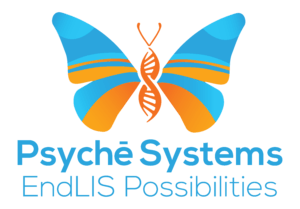Psyche Systems is a software company that provides lab information software (LIS) to clinical, molecular, and anatomical pathology laboratories. Their solutions help laboratories manage patient information, test orders, report results, perform quality control, and ensure regulatory compliance.
Laboratory Information Software is a system managing the workflow and data associated with clinical laboratory operations. It allows for the efficient management of laboratory data, including patient data, test results, and quality control measures.
LIS software uses various protocols to communicate with different laboratory equipment to interface with lab instruments. This allows the LIS to automatically receive data from lab instruments and integrate it into the patient’s electronic record.
Types of Lab Information Software Interfaces
There are several types of LIS instruments, and here are the common types:
1. Direct interface
In a direct interface, laboratory instruments are connected directly to the LIS software without using intermediate software. Direct interfaces are used when the laboratory has instruments from a single vendor or when the instruments are compatible with the LIS software.
2. Indirect interfaces
For indirect interfaces, the laboratory instruments are connected to the LIS software through a “middleware.” The middleware software bridges the instrument and the LIS software, allowing the two systems to communicate.
Middleware collects data from the instrument and converts it into a format compatible with the LIS software. The LIS software then receives the converted data and records it in the appropriate record.
3. Import and export interfaces
Import and export interfaces transfer data between the LIS software and other systems, such as electronic medical record (EMR) systems, public health agencies, or reference laboratories.
In an import interface, data is transferred from an external system into the LIS software. For example, a healthcare provider can import laboratory test orders from an EMR system into the LIS software. The LIS software uses this information to generate test requests and record test results.
On the other hand, in an export interface, data is transferred from the LIS software to an external system. For example, laboratory test results can be exported from the LIS software to an EMR system, allowing healthcare providers to view the results as part of the patient’s medical record.
Benefits of Interfacing Lab Information Software with Lab Instruments
There are several benefits of interfacing LIS software with laboratory instruments. These benefits include:
- Improved data accuracy and integrity: When test results are automatically transferred from the instrument to the LIS, there is less opportunity for errors to be introduced during the data entry process.
- Increased efficiency and productivity: Interfacing LIS with lab instruments can help automate manual tasks and streamline laboratory workflows, increasing healthcare providers’ productivity and efficiency.
- Enhanced data management and reporting capabilities: When test results are automatically organized and stored in the LIS, it’s easier for laboratory staff to find and review test data as needed.
- Improved compliance with regulatory requirements: By automating data transfer and record-keeping, laboratories can demonstrate compliance with regulations such as the Clinical Laboratory Improvement Amendments (CLIA).
Interfacing LIS with lab instruments can enhance the quality of laboratory testing, leading to better patient care outcomes.
Challenges of Interfacing Lab Information Software with Lab Instruments
Challenges that laboratories may face when implementing such interfaces may include:
- Managing the complexity of interfacing software and hardware: Interfacing LIS with lab instruments can be a technically complex process involving configuring hardware, software, and network components.
- Ensuring data security and privacy: Interfacing LIS with lab instruments can increase the risk of data breaches or other security vulnerabilities.
- Keeping up with the latest technology updates: Keeping up with the latest technology updates is an ongoing challenge as interfacing technology is rapidly evolving and new advancements are constantly being introduced.
- Maintaining the interfaces over time: Once an interface has been implemented, it may require ongoing maintenance and support to ensure it continues functioning properly.
Laboratories must be prepared to address the technical, financial, regulatory, and security challenges that can arise during the implementation phases and with ongoing use.
Example of a Lab Information Software-Instrument Interface
An example of a LIS instrument interface is the integration of a hematology analyzer with a LIS software platform. Hematology analyzers are used in clinical laboratories to analyze blood samples.
An interface between the two systems must be established to integrate a hematology analyzer with a LIS software platform. This interface configures the hematology analyzer to transmit test results to the LIS software using a specific communication protocol, such as Health Level Seven (HL7).
Once the interface has been established, the LIS software can provide a range of benefits to the laboratory, including improved data accuracy, enhanced reporting capabilities, and streamlined workflow.
However, integrating a hematology analyzer with a LIS software platform can be complex, requiring careful planning, technical expertise, and ongoing support to ensure the interface functions smoothly over time.
In Conclusion
The interface between Laboratory Information System (LIS) software and laboratory instruments is critical to improving modern laboratory operations.
We can expect to see continued advancements in the integration of laboratory instruments with LIS software. This may include machine learning and artificial intelligence to enhance data analysis and interpretation to support complex laboratory workflows.
Psyche Systems provides laboratory information management systems, including custom LIS software solutions. With software and laboratory operations expertise, Psyche Systems can help laboratories design, develop, and implement customized LIS solutions tailored to their specific needs. Feel free to contact us with your LIS questions.

